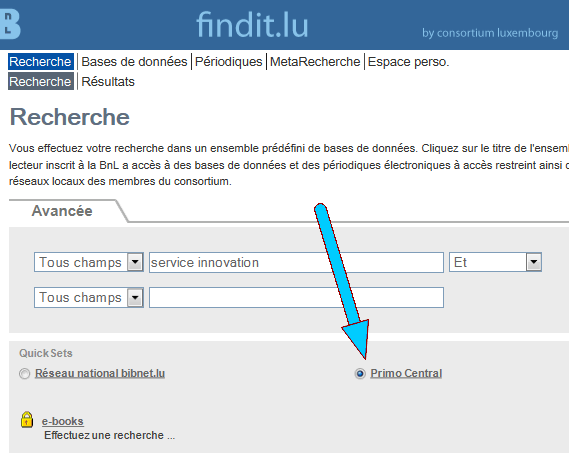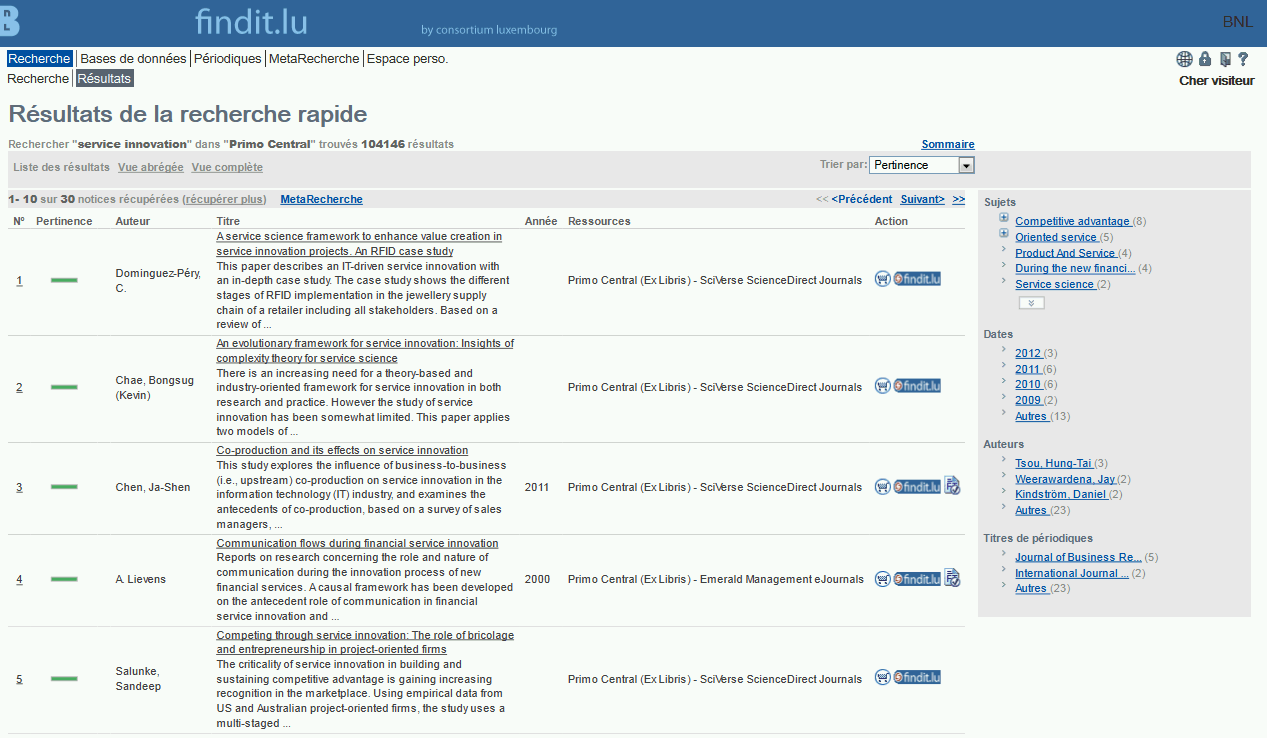Try out the “Primo Central” Mega Index, select it and execute a query:
Primo Central is the next step in scholarly discovery tools: A single index which includes several hundred million references, abstracts and article full-text from a very large selection of publishers. Previously, only federated search allowed a simultaneous search of publications from different publishers. This functionality is called “Metasearch” in findit.lu (a guide is available). Additionally, you can save such a selection of resources for future searches in a “Quickset” (guide) and, building on that, even have findit.lu execute specific queries in these Quicksets as repeated “alerts” (guide).
While we will not abandon these features, there are some limitations in the concept of “Metasearch”. The most obvious is speed: the results can only be displayed once the slowest publisher has delivered. The second limitation is managing the result list, which can easily contain thousands of hits from different publishers. It is impossible, again for speed reasons, to download them all into findit.lu and then index them locally to allow for easy browsing, for instance by author, publication year, etc. Currently, findit.lu supports 30 to 50 results from each publisher, additional results are loaded on demand.
The new “Primo Central” mega index is a big step to solve these problems. It is an index that is pre-compiled fromreferences, abstracts and article full-text from a very large selection of publishers, overall it indexes sveral hundred million articles. This index is searchable in just one query, lightning fast and offers pre-compiled browsing of the results with facets, such as in the example screenshot below, a search for “service innovation”.
The current release is out of beta, fully functional, but not integrated yet with our subscriptions or print holdings. Stay tuned!


